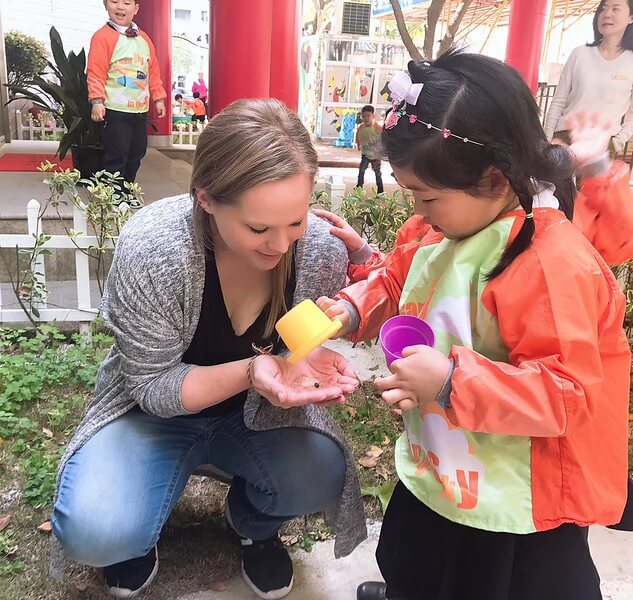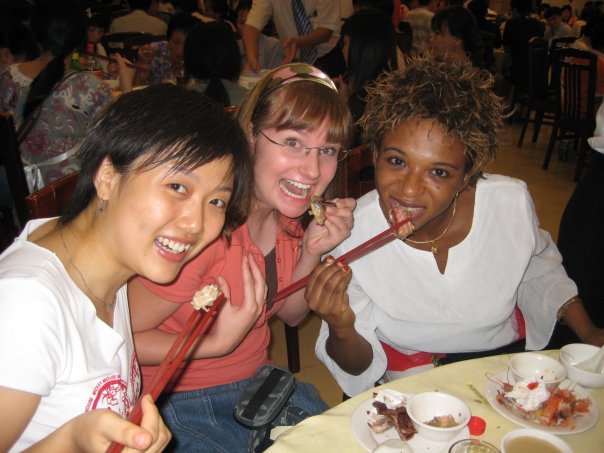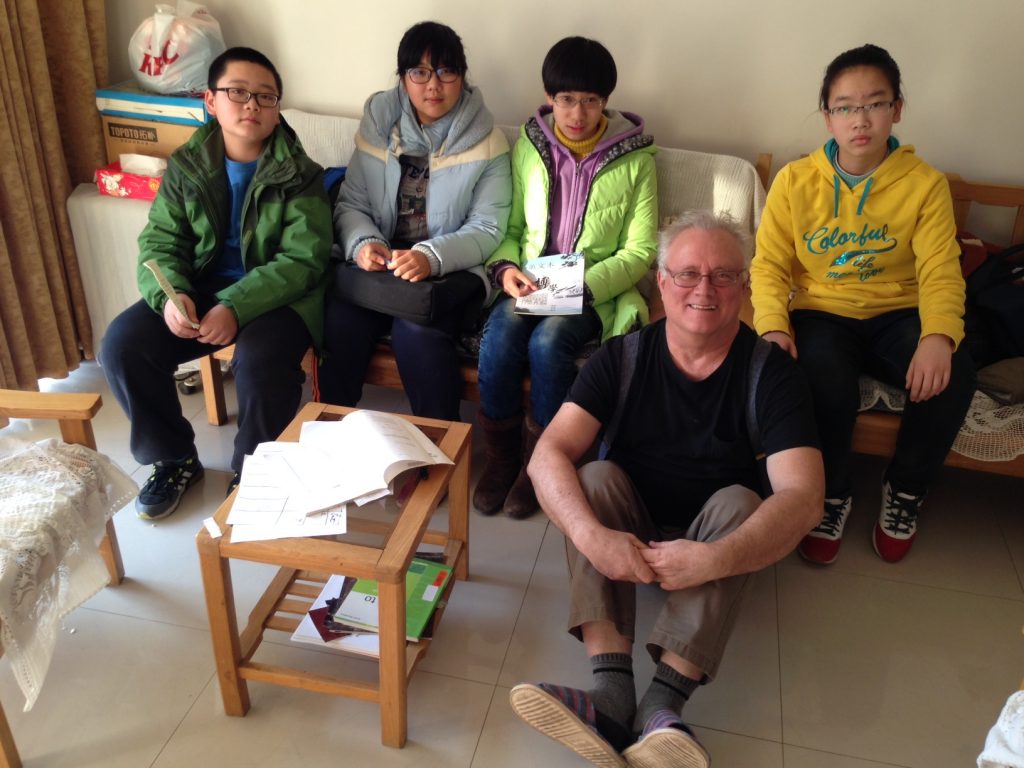There may not be a country in the world with more job openings for TEFL teachers than China, which has a thriving English-teaching market. Teaching in China can be fun and rewarding, and it’s a good fit for many teachers looking for a cultural experience vastly different from their own.
You know you’ll need a TEFL certificate (ideally of 120 hours or more) and a degree to teach in China, but that’s just the beginning! To help you prepare for the real-life adventure of moving to China, we’ve got practical, insider tips shared by LTL Mandarin School, whose team of teachers and staff in cities like Beijing, Shanghai, and Chengde have firsthand experience interacting with and adapting to China’s unique culture.
Mastering even a bit of the language
No matter when you’re officially making the move to teach in China, you can begin learning the language now! Even if you only learn a few basics before you go, learning a bit of Chinese ahead of time will make your life abroad so much easier. Yes, you may come across the occasional English speaker in some of the bigger cities like Shanghai and Beijing, but there will still be plenty of times both in the major cities and in the smaller villages when you’ll need to use Chinese to ask for directions, make a purchase, or use public transportation.
Try learning some basic Chinese with pictures, or familiarizing yourself with the characters of the Chinese alphabet. The alphabet may seem daunting at first, but the earlier you start studying it the easier it will be to navigate your new home and communicate with your colleagues at the school or language institute where you’ll be teaching.
Using WeChat to message your friends
Nearly everyone in China uses WeChat, a mobile messaging app, to communicate. It’s worth downloading before you move, as chances are you’ll need it to touch base with coworkers, parents, students, or even your superiors where you’ll be teaching. WeChat can also be used to chat with other Chinese people using the app nearby, allowing you to ask for recommendations, get directions, or even just practice your Chinese with native speakers.
Avoiding the English bubble
Teaching English in China is a great opportunity to experience another culture and language. However, many TEFL teachers will end up in larger cities like Beijing and Shanghai, where it’s easy to find other English-speaking people or foreigners. Instead of getting stuck in an English bubble, try to branch out and meet people from the region. Even if you don’t want to submit to full Chinese immersion, interacting with locals will give you an opportunity to develop your Chinese and learn more about the customs and traditions of the people where you’re teaching.
Downloading a VPN
When teaching in China, you may find that many websites and apps you normally access are blocked. To get around this issue, be sure to download a VPN, a virtual private network, that conceals your IP address, or location (read LTL’s guide to VPNs here). It’s better to do this ahead of time because downloading a VPN while in China might be more difficult. Make sure to download it on each of your devices, including your phone, laptop, iPad, or tablet.
Remembering to be patient
Like with any new job or location, adapting to life teaching in China will take some time. Not only that but conducting everyday activities, like going to the bank, might take quite a bit of time in China due to the difference in bureaucracy. Whether it’s getting used to your new home, making friends, or standing in an extremely long line at the store, you’ll need a large dose of patience when you move abroad to China.
Pro Tip: When it comes to running errands or integrating into the Chinese system, one of the best policies is to always take your passport with you. It can reduce wasted time and make things go a bit smoother.

Getting to know and love Chinese apps
Since many popular apps are blocked in China, the country often has its own version of many apps that you can easily download. You already learned that WeChat is the trending alternative to apps like WhatsApp, and other popular alternatives include Baidu Maps in place of Google Maps, QQ Music in place of Spotify, and Didi in place of Uber. These Chinese apps are often available in English when downloaded from a foreign app store and work just as well as their international counterparts.
Preparing for the supermarket experience
Apart from having its own websites and apps, it’s important to bear in mind that China manufactures most of its own products as well. This means that it may prove difficult to find your favorite personal products or foods from back home during your time teaching abroad. Consider packing plenty of the things you can’t live without from home before you leave and be open to discovering new Chinese products that may even replace your favorites back home!
Choosing where to live
Choosing where to live and teach English in China requires a good bit of research ahead of time. You’ll need to consider the climate you prefer (a cold winter in the north or a hot summer in the south?), as well as the size and type of city you’d like to be in.

Brendan, English teacher in Shenzhen
Climate
China is an enormous country and thus has very diverse climates. As the weather will greatly impact your time there, it’s important to be somewhat familiar with the different regions and climates.
Regions
Beijing is situated in the middle of the north/south line with weather that changes drastically throughout the year. The city doesn’t experience much of an autumn or spring but can exhibit extreme temperatures of higher than 40° C (104° F) in the summer and lower than -20° C (-4° F) in the winter.
For locations further north of Beijing, it will get much colder during the winter. Places in the far north can reach temperatures colder than -35° C (-31° F) for longer periods of time. On the other hand, locations further south in China, like Shenzhen, only see mild winters no colder than 20° C (68° F), which is perfect for TEFL teachers looking to avoid cold weather!
Learn more about different teaching locations in China and the tier system.

Hangzhou, China
Central heating
One thing that’s helpful to keep in mind is China’s central heating system, which is turned on and off automatically in the north of China during set dates. That’s right – this means that you won’t have any control over your own heating. If it gets cold sooner than usual, you may experience a few weeks without heat where you need extra blankets. Similarly, you may find yourself opening all of your windows and sweating if the heat is still on during a fluke warm spell.
Wherever you decide to teach in China, be prepared for extreme weather, including humidity, which is high in Beijing and the southern part of the country. Bring plenty of sunscreen and be ready to wear a mask when pollution gets especially bad in the bigger cities like Beijing.
Size and type of city

In addition to weather, think about if you want to be in a big city with a Western feel, like Shanghai, or a more traditional Chinese city, like Beijing. Maybe you prefer avoiding a city altogether and heading to a smaller village or seldom-visited area.
If you like people who are laid back, you may consider teaching in a southern place like Hainan, a tropical island. On the other hand, you might want to see what it’s like teaching in the north, where locals are tough and speak their minds. Doing your research ahead of time will ensure that you have a positive teaching experience and enjoy your new home.
Embracing the food culture
Chinese food in China is extremely different from the Chinese food you’re probably used to in your home country, where it has been adapted to Western tastes. True Chinese food is spicy, oily, greasy, and maybe even full of MSG. There’s also a lot of meat and fish involved in Chinese cooking. While at first your stomach may not agree with all of the different dishes and flavors, you’ll probably adapt to them in time. Branch out and enjoy all the local cuisine has to offer!

Understanding the people
As with any new culture, there will be many Chinese mannerisms and customs that you’re not familiar with and that may take some getting used to. Some people accuse Chinese people of being loud or direct and taking many photos when touring abroad. However, in their culture, this is the norm.
While you might find these sorts of behaviors rude at first, you should try to embrace them. You don’t have to participate in them, but you do need to keep an open mind, be tolerant, and remember that you’re in China to teach English and experience another culture, not impose your own behaviors on those around you.
Preparing for culture shock
Some things about the Chinese culture—children going to the bathroom in the streets or the lack of formal queuing in public places—may shock you more than others. Instead of becoming overwhelmed or upset by these differences, try to embrace them and remember that it’s all part of the experience of being a TEFL teacher in another country!

Getting ready for the adventure of a lifetime
Teaching English in China can be an amazing experience. Not only do teachers enjoy above average salaries, and benefits like housing, vacation days, and bonuses, but as a teacher in China you’ll get to be part of a unique community, experience a diverse culture, learn a new language, and touch the lives of many Chinese students.









